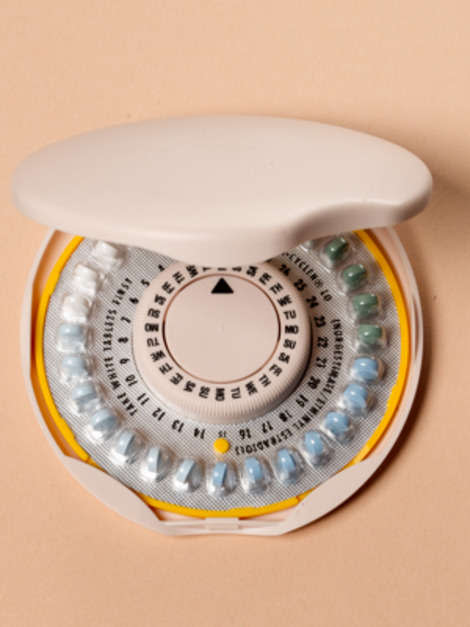Could Birth Control One Day Protect You from STIs, Too?
by Anna Matlby

Cool science news: A new long-lasting device could one day be available to protect women against both pregnancy and HIV, researchers at Northwestern University announced recently. While the device is still in the very early stages, it's a potentially big step in the fight against HIV and unwanted pregnancy, especially in low-income regions such as sub-Saharan Africa.
"Condoms are effective at preventing both pregnancy and HIV transmission but they have problems that range from men not liking them to women often being powerless to make men use them," says Northwestern University biomedical engineer Patrick Kiser, Ph.D. "We need woman-controlled methods of contraception and HIV prevention."
See more: How to Look Better Naked
Kiser's solution: a long-acting intravaginal ring that contains both a hormonal contraceptive and an antiretroviral drug. It looks similar to the NuvaRing, and Kiser says most women won't even feel it inside them -- nor should their sexual partners, though this will be tested later on. The rings are currently in clinical development and the researchers will soon submit their information to the FDA to get a green light to test the ring on humans.
"Both drugs [the antiretroviral and the contraceptive] have a long history of safety so we do not expect a problem there, but we have to check," Kiser says. After the first year-and-a-half-long safety trial, the researchers will conduct a larger safety trial and then a large efficacy trial. All in all, it may take anywhere from seven to ten years to get the devices in real women's hands. But it could be worth the wait, Kiser says.
See more: 6 Moves To Resize Your Butt and Thighs
"I believe this is an important step in women's health technology -- it can give a woman who wants to control her reproductive health and prevent STIs a single device that can protect her from the life-changing event of an unwanted pregnancy and a deadly life-long disease," Kiser says. "I want women to know in this era where the use of contraceptives is still being adjudicated in the press and the courts, that innovation in family planning is not over, and many of us are still fighting hard to provide more and better options for women to control their reproductive health.
And side note: While Kiser and his team designed their ring with women in low-income countries in mind, he says he expects the device will resonate with young women everywhere.
"When in a new relationship, condoms are commonly used, but at some point the condoms come off," Kiser says. "In some ways this ring, from a functional perspective, is a woman-controlled chemical condom."
We'll be keeping an eye on this research, so stay tuned!
More from SELF:
Drop Two Pounds in One Week!
The 24-Minute At-Home Boot Camp
20 Superfoods For Weight Loss
Secrets To Firing Up Your Metabolism

